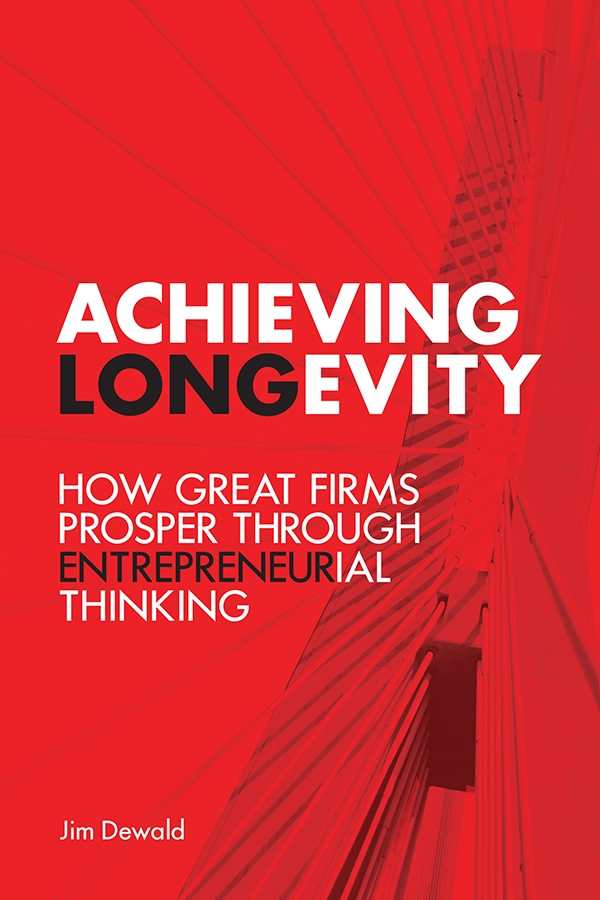Achieving Longevity
How Great Firms Prosper Through Entrepreneurial Thinking
A business-school dean makes the case for achieving corporate longevity through entrepreneurial thinking.
Entrepreneurship is most often associated with individuals who start businesses, but Jim Dewald believes corporate entrepreneurship is not only possible, it is necessary. While he laments the fact that corporate entrepreneurship is often lacking because of “institutional barriers,” Dewald is optimistic, posing this key question: “Are we entering a new era in which corporate entrepreneurship will become essential, even for short-term success?”
The approach of Achieving Longevity to the subject is appropriately methodical. It first offers a sweeping overview of the current economic environment and its relationship to the success or failure of businesses. Then, it explores “strategic entrepreneurship” in detail and demonstrates how corporate entrepreneurship leads to business longevity. The last portion of the book turns theory into practice, showing specifically how firms can surmount the challenges associated with instituting corporate entrepreneurship.
Achieving Longevity is both well organized and elegantly written. Each chapter has a distinct focus and ends with a summary of the chapter’s main messages. Sprinkled throughout the text, particularly in its last portion, are excellent illustrations of entrepreneurial firms that, because of their innovative thinking, have sustained growth over time. The story of 3M, for example, vividly shows how the company is constantly experimenting because of its corporate culture of “a tolerance for tinkering;” in fact, “employees are encouraged to use 15 percent of their time to do whatever they want.” Similarly, IBM, writes Dewald, “went through at least five entrepreneurial-driven shifts” to become “the poster corporation for strategic entrepreneurship.”
Dewald cautions that corporate entrepreneurial initiatives are risky and prone to failure, but points out paradoxically that failing as a business is still worse than failing to innovate. He acknowledges that business leaders who want to innovate will meet with resistance from internal and external forces. Still, he is convinced that “the path to longevity and firm sustainability is paved with the skill of entrepreneurial thinking.” Achieving Longevity makes a convincing argument that should bolster the courage of leaders who know they need to push their firms to greatness.
Reviewed by
Barry Silverstein
Disclosure: This article is not an endorsement, but a review. The publisher of this book provided free copies of the book to have their book reviewed by a professional reviewer. No fee was paid by the publisher for this review. Foreword Reviews only recommends books that we love. Foreword Magazine, Inc. is disclosing this in accordance with the Federal Trade Commission’s 16 CFR, Part 255.

